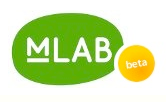This afternoon AT&T filed a letter with the Federal Communications Commission, alleging that Google Voice is preventing its users from making outbound calls to certain phone numbers with inflated access charges, and asking the Commission to intervene.
Here's the quick background: Local telephone carriers charge long-distance companies for originating and terminating calls to and from their networks. Certain local carriers in rural areas charge AT&T and other long-distance companies especially high rates to connect calls to their networks. Sometimes these local carriers partner and share revenue with adult chat services, conference calling centers, party lines, and others that are able to attract lots of incoming phone calls to their networks.
Under the common carrier laws, AT&T and other traditional phone companies are required to connect these calls. In the past they've argued that these rural carriers are abusing the system to "establish grossly excessive access charges under false pretenses," and to "offer kickbacks to operators of pornographic chat lines and other calling services." (This is a complicated issue, but these articles from USA Today and the Associated Press explain it well.)
We agree with AT&T that the current carrier compensation system is badly flawed, and that the single best answer is for the FCC to take the necessary steps to fix it.
So how does any of this relate to Google Voice?
Google Voice's goal is to provide consumers with free or low-cost access to as many advanced communications features as possible. In order to do this, Google Voice does restrict certain outbound calls from our Web platform to these high-priced destinations. But despite AT&T's efforts to blur the distinctions between Google Voice and traditional phone service, there are many significant differences:
- Unlike traditional carriers, Google Voice is a free, Web-based software application, and so not subject to common carrier laws.
- Google Voice is not intended to be a replacement for traditional phone service -- in fact, you need an existing land or wireless line in order to use it. Importantly, users are still able to make outbound calls on any other phone device.
- Google Voice is currently invitation-only, serving a limited number of users.
AT&T is trying to make this about Google's support for an open Internet, but the comparison just doesn't fly. The FCC's open Internet principles apply only to the behavior of broadband carriers -- not the creators of Web-based software applications. Even though the FCC does not have jurisdiction over how software applications function, AT&T apparently wants to use the regulatory process to undermine Web-based competition and innovation.
* Note: This blog post was updated at 4:55 PM ET to clarify the FCC's open Internet principles.
* Note: This blog post was updated at 4:55 PM ET to clarify the FCC's open Internet principles.








